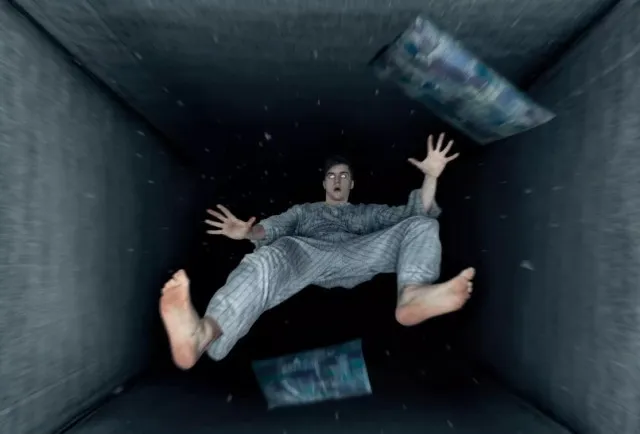A brain expert explains why people often dream about falling during sleep, revealing the surprising psychological reasons behind it.
Many people have experienced the unsettling sensation of falling while they sleep.
This common occurrence often jolts them awake, leaving them confused and startled.
But what causes this strange feeling?
Experts have started to uncover the reasons behind this phenomenon.

The experience of falling
When you drift off to sleep, you may suddenly feel like you are falling.
This can happen just as you are about to enter a deeper sleep.
Instead of peacefully resting, you might wake up suddenly, heart racing and breathless.
This experience is known as a “hypnic jerk” or “myoclonic jerk.”
It is a common occurrence, but many do not understand why it happens.
What is a Hypnic Jerk?
A hypnic jerk is an involuntary muscle contraction that occurs when you are falling asleep.

As your body relaxes, your muscles begin to unwind.
During this transition, your brain can sometimes misinterpret the signals from your body.
It may think you are actually falling, which leads to the sudden jolt that wakes you up.
Causes of this phenomenon
Experts suggest that several factors can contribute to these hypnic jerks.
Stress and anxiety are two significant triggers.
When your mind is racing or you are feeling overwhelmed, it can affect your ability to relax.
This heightened state of alertness may lead to more frequent jerks.

Lack of sleep is another contributing factor.
If you are not well-rested, your body may struggle to enter a state of deep sleep.
Caffeine intake can also play a role.
Consuming too much caffeine, especially close to bedtime, can disrupt your sleep patterns and increase the likelihood of experiencing hypnic jerks.
The science behind falling in our sleep
According to brain experts, when you begin to fall asleep, your brain transitions from wakefulness to sleepiness.
During this process, it can mistakenly signal that you are in danger of falling.
This evolutionary response may have developed to help our ancestors react quickly to potential threats.
By jolting awake, they could stay alert to dangers in their environment.
For most people, experiencing hypnic jerks is perfectly normal. It is a natural part of the sleep process.
However, if these episodes become frequent or severely disrupt your sleep, it may be worth discussing with a healthcare professional.
They can help determine if there are underlying issues that need to be addressed.
@dr.z_neurosurgery These are hypnic jerks or hypnagogic jerks. Also jnown as twitching while falling asleep. sleep sleephygiene bettersleep improvesleep brain neuroscience healthandwellness mentalhealth
Tips for better sleep
If you find yourself frequently jolted awake by these sensations, there are steps you can take to improve your sleep quality.
Create a relaxing bedtime routine
Establish a calming routine before bed. Activities like reading, meditating, or taking a warm bath can signal to your brain that it’s time to wind down.
Limit caffeine and alcohol
Avoid caffeine and alcohol in the hours leading up to bedtime.
Both substances can interfere with your sleep cycle and increase the chances of hypnic jerks.

Exercise earlier in the Day
If you enjoy exercising, try to do it earlier in the day.
Exercising too close to bedtime can keep your body energized and make it harder to relax.
Find healthy ways to manage stress.
This could include talking to a friend, practicing yoga, or engaging in hobbies that make you happy.
Maintain a sleep schedule
Try to go to bed and wake up at the same time each day.
A consistent sleep schedule helps regulate your body’s internal clock, making it easier to fall asleep.